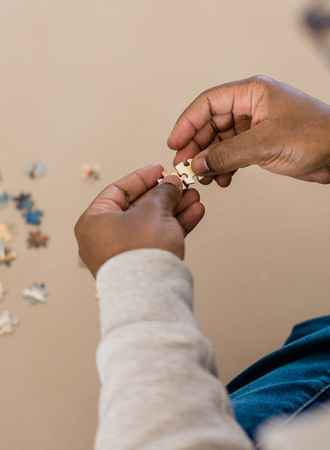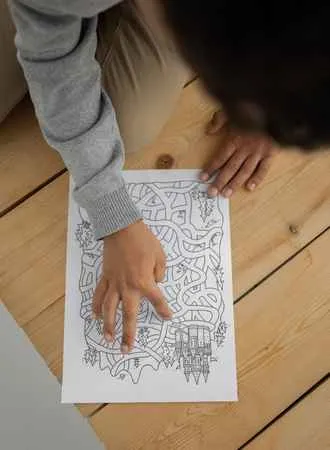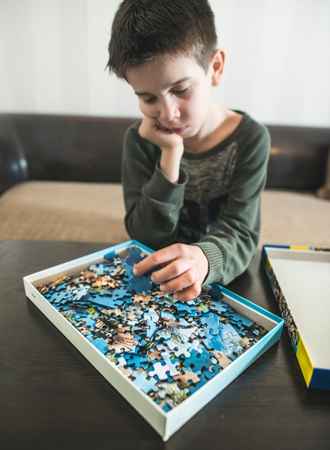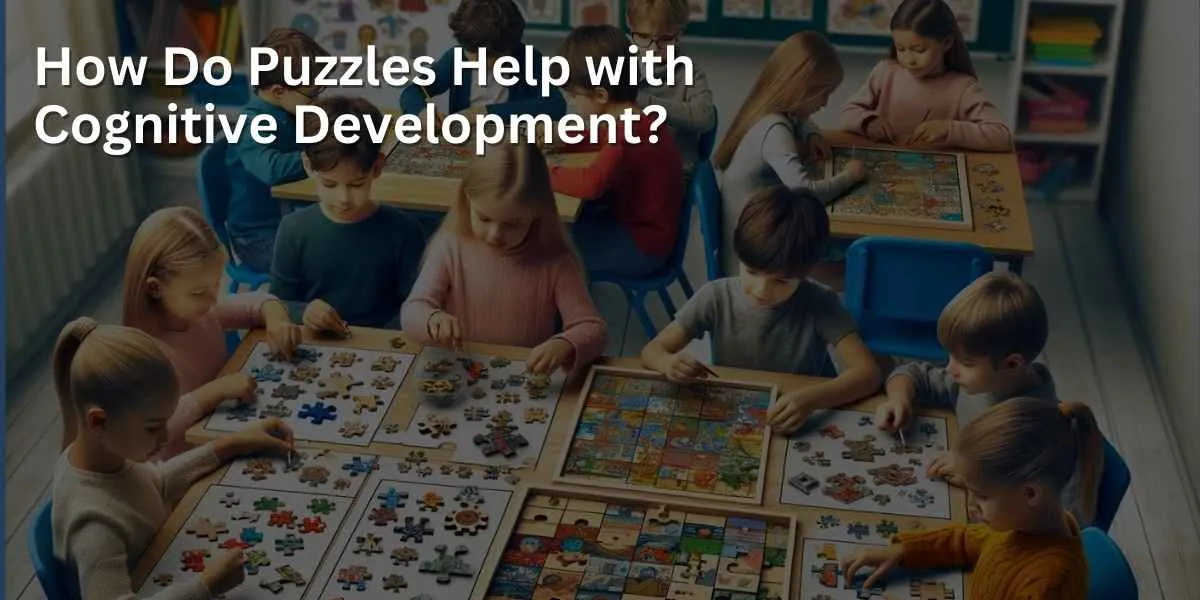We all know that spending time playing and learning together is important for our children’s growth, but did you know there are some great benefits to using puzzles as a way of engaging in educational playtime?
From the individual’s ability to solve problems to teaching them how to focus on the task of playing puzzle at hand, do puzzles really have an impact on cognitive development?
In this blog post we’ll explore the different types of puzzle available, tips for choosing the right one for your family and even witty ways to get kids excited about doing their daily dose of puzzling.
Key Takeaways on Puzzle Play for Early Childhood Development
- Puzzles are a great way to help children develop cognitive skills and social skills, improve memory, and increased concentration.
- By introducing various types of educational activities into playtime, you can ensure your child is getting plenty of mental stimulation while having fun at the same time.
- Consider age appropriateness, difficulty level, variety in pieces and design option when choosing puzzles for young children.
The Many Benefits of Puzzles for Cognitive Development
Puzzles are a great way to help children develop cognitive skills such as memory, problem-solving and concentration in their early years. They can also be fun for all ages and the whole family! Here’s how puzzles can benefit your child’s cognitive development:
- Puzzles help improve short-term memory by challenging children to remember where pieces go and which shapes fit together. With each puzzle completed, their memories become stronger. This helps them in other areas of life too – like remembering directions or facts from school.
- Puzzles require children to think logically and strategically about how pieces fit together. As they progress through more difficult puzzles, they learn valuable problem solving skills that will come in handy throughout their lives.
- When completing a puzzle, children must stay focused on the task at hand until it is finished. Doing this repeatedly strengthens their ability to concentrate on one thing for longer periods of time – an important skill for success in school and beyond.
Benefits of Puzzles
| Benefit Category | Description |
|---|---|
| Cognitive Development | – Problem-Solving: Enhances problem-solving skills by requiring individuals to think logically. – Spatial Awareness: Improves understanding of spatial relationships. – Memory: Enhances memory as individuals remember shapes and strategies that work. – Visual-Spatial Reasoning: Boosts the ability to understand spatial relationships. |
| Motor Skills | – Fine Motor Skills: Helps in developing fine motor skills as individuals manipulate pieces to fit. – Hand-Eye Coordination: Enhances coordination between what the eye perceives and how the hand responds. |
| Social Skills | – Teamwork: Promotes teamwork when puzzles are completed collaboratively. – Communication Skills: Encourages communication when discussing strategies or asking for help – helps language skills. – Patience: Cultivates patience as individuals work persistently to complete the puzzle. |
| Emotional Skills | – Self-Esteem: Boosts self-esteem and satisfaction upon completion of a puzzle. – Stress Relief: Provides a sense of relaxation and lowers stress levels. |
| Educational Value | – Shape Recognition: Aids in recognizing shapes and understanding geometrical concepts. – Pattern Recognition: child develops pattern recognition which is fundamental for math and reading. – Topic Learning: Puzzles themed around specific topics can be educational and introduce new concepts. |
| Creativity and Imagination | – Creative Thinking: Encourages thinking outside the box to solve the puzzle. – Imaginative Play: Themed puzzles can spark imaginative play and storytelling. |
| Life Skills | – Goal Setting: Teaches the importance of setting and achieving small goals as part of a larger objective. – Persistence: puzzles develop strategies to get a sense of persistence and determination to complete challenging tasks – developing perseverance and repeated practice. |
| Therapeutic Benefits | – Mindfulness: Provides a meditative experience that encourages mindfulness. – Cognitive Exercise: Offers a form of cognitive exercise that can be beneficial for maintaining brain health. |

Types of Puzzles That Help With Cognitive Development
From jigsaw puzzles to word puzzles and logic puzzles, there are many types of puzzles that can help your child improve their memory, fine motor skills, gross motor skills, concentration, understanding.
Jigsaw puzzles come in all shapes and sizes and can be tailored to fit any age group or skill level. The pieces of the jigsaw puzzle must be put together correctly in order for it to look like the image on the box.
This type of puzzle encourages spatial awareness as well as hand-eye coordination while also teaching children about patterns, colors, shapes and more!
Word puzzles such as crosswords or anagrams require a certain amount of knowledge from the player but they’re also great for improving spelling skills and increasing vocabulary size.
They also encourage critical thinking by forcing players to think outside the box when trying out strategies to solve them!
Logic puzzles involve the brain using logical reasoning rather than factual knowledge in order to solve them. These puzzle games often have multiple solutions which makes them perfect for developing problem solving abilities while still being fun at the same time!
Examples include Sudoku or other grid based games where players must fill out each row with specific numbers without repeating any values within each column or row.
Solving puzzles also helps with physical development in kids as it improves their fine motor skills, hand-eye coordination, and spatial awareness.
Tips for Choosing the Right Puzzle for Child Development
When it comes to choosing the right puzzle for your child’s cognitive development at an early age, there are a few things you should consider.
- Age appropriateness and difficulty level is an important factor when selecting a puzzle for your little one. Children learn through play and it’s best to start with puzzles that are age-appropriate and gradually increase the difficulty as they get older.
- Look for variety in the pieces and design options of the puzzle you choose; this will help keep their interest levels high.
- Playing puzzles that encourage creative thinking and exploration are also great choices since these types of activities can help improve the human brain, critical thinking skills, memory, concentration, and more. It also teaches patience which children need growing up.
- Look for variety in both the pieces and design options available in each type of puzzle you select. For example if opting for jigsaw puzzles try finding ones with different shapes, sizes, textures and colors so that it keeps their attention longer than just completing one single image over again every time.
- Puzzles that encourage creative thinking and exploration, such as mazes, logic games, crosswords, and word searches can be great for children. Not only do these activities challenge them but they also teach them how to think outside the box while still having fun.
- Choose puzzles that promote increased concentration and focus, improved memory recall abilities, better visual spatial reasoning capabilities – all essential components necessary towards successful academic achievement later in life.

Fun Ways to Get Children Excited About Doing Puzzles
Here are some tips on how to challenge children and to make the most out of your puzzle time with your little one.
- To ensure that your child is engaged and interested in the activity, create an inviting environment for them. Choose a spot where they can be comfortable and have plenty of space to begin to work on their picture puzzles without any distractions.
- As you both work together on completing a puzzle, take this opportunity to talk about what you see in each piece and discuss different shapes, colors, and patterns. This will not only help build their vocabulary but also encourage creative thinking as they explore new ideas through conversation.
- Use positive reinforcement by praising your toddlers when they find success with larger puzzle pieces, do something right or complete a task successfully as this will motivate them further and boost their confidence levels too.
- Let your child complete the puzzle with any adult intervention. If the puzzle is too difficult to complete independently, put a puzzle piece or two pieces based on what’s making sense and explain the process to your toddler.
- Children love competition and challenges! Make it fun by setting up an obstacle course with the puzzle pieces, giving each child a certain amount of time to complete their own puzzle or having them race against one another.
- Put on some upbeat music and let your children dance around while they work on their puzzles. This will help keep them engaged and focused while having fun at the same time.
- Puzzles are great for storytelling activities because they allow children to use their imagination and create stories based off of what they see in each piece.





